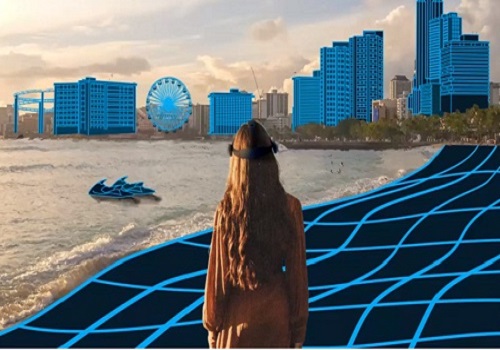
June 22, 2023: Artificial Intelligence and technology will be the top strategic priorities for the tourism, travel and hospitality industry in 2023, finds a poll at a recent conference held in Cancun, by HotelBeds.
It found that over a third of the delegates planned to make AI and technology as their top priority this year, while another 28% had decided to increase levels of innovation, reports TravelDailyNews.
The trend is reflected across these sectors worldwide.
“AI and ChatGPT will be game changers for the hospitality business”, said Reza Etemad-Sajadi, Associate Professor, at the EHL Hospitality Business School in Lausanne, Switzerland, in an interview with The Hindu earlier this month, “Curricula and programmes should be ready to adapt to the ways in which professionals evolve.”
Hybrid experience
The travel experience of the future will not be exclusively online or offline. Instead, we’ll most likely see a proliferation of hybrid offerings, with virtual events, edutainment, and inspiration combined with physical destinations, suggests a May 2023 study by analysts McKinsey, entitled “Tourism in the Metaverse”.
It provides a vision of a future of virtual travel driven by the metaverse: “Imagine a future where your travel choices have no geographic constraints. Where you can join your friends in the front row of a concert by your favorite star—but the crowd is 300 million strong, your friends are on the other side of the world, and it’s all happening at the Great Pyramid of Giza.” The metaverse is seen as the next evolution of the internet—a collective space where physical and digital worlds converge to deliver more immersive, interactive virtual- or augmented-reality (VR/AR) user experiences, often referred to together as extended reality (XR).
The McKinsey study suggests:
The metaverse creates a $13 billion opportunity for tourism inspiration, mostly driven by digital travel advertising. Virtual spaces—which can be used to showcase hotel amenities, airline classes, or an entire landmark—spark the desire to travel, give a holistic idea of a destination, help in traveller decision-making, showcase broader offerings, and raise awareness of unfamiliar locations.
However, it’s prudent for travel players to think proactively about engaging with the metaverse—and perhaps seize a first-mover’s advantage. Early control will help to sidestep thorny issues like third parties claiming virtual rights to a location.
Once travel players have plotted out potential traveller journeys (whether hybrid or fully digital), they can find the right collaborators to bring these experiences to life—such as virtual-universe and retail platforms, communications channels, and designers.
How can travel companies leverage the metaverse to create more compelling experiences for their customers? Certain challenges must be overcome: these include enabling interoperability between decentralized worlds, protecting data security, and making immersive devices more readily available
The metaverse promises to shake up many sectors of the global economy. Virtual experiences have huge potential for the tourism and travel industries, with the prospect of hybrid and fully immersive digital destinations.
The authors conclude:
It may take longer for the metaverse to reveal its utility for end-to-end travel experiences, if it ever does.
Nonetheless, there are undeniably travel touchpoints where metaverse integration feels inevitable, profitable and “no regret.”
AI apps for travellers
AI is already fuelling many traveller-friendly apps, suggests Larry Magid, last week, in the San Jose Mercury News :
“In addition to a myriad of useful travel and dining apps, what’s new this year are easy to use artificial intelligence services that can help you plan your trip.”
“(ChatGPT) was incredibly useful at pointing out interesting places to stop. I did the same with Google Bard, and it, too, came up with interesting things to do, some of which were different from ChatGPT’s recommendations.”
“There are lots of travel apps, including ones like Expedia, Kayak and others that can help you find flights, hotels and rental cars. One thing I’ve learned is to try more than one app or website, including the ones operated by the airline, hotel or rental car company. These apps can also be used to find attractions and local tours as well as make reservations.”